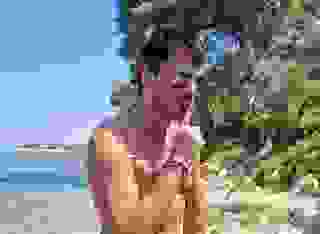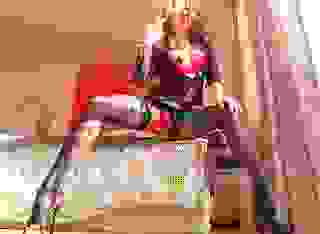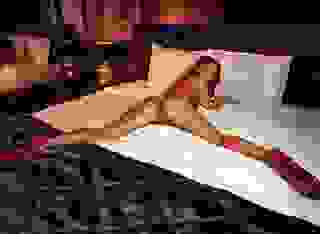- Gay Male
- Journey of Rick Heiden Ch. 14
Note: You can change font size, font face, and turn on dark mode by clicking the "A" icon tab in the Story Info Box.
You can temporarily switch back to a Classic Literotica® experience during our ongoing public Beta testing. Please consider leaving feedback on issues you experience or suggest improvements.
Click hereAll Rights Reserved © 2018, Rick Haydn Horst
This is a work of fiction. Names, characters, businesses, places, events, locales, and incidents are either the products of the author's imagination or used in a fictitious manner. Any resemblance to actual persons, living or dead, or actual events is purely coincidental.
CHAPTER FOURTEEN
We stood on the portal, the sphere surrounded us, and its light shone like the sun. I had that thought as we arrived back on Earth. I then realized the writer of that ancient text on Jiyū hadn't referred to the sun; they meant the sphere of swirling plasma that the portal created. Perhaps, they believed that Amaterasu, the Japanese sun goddess, had transported them to her realm in a loving embrace. But then again, it could have just reminded them of the sun, and the name stuck. Whatever their thought, it probably didn't take long to discover the portal went both ways. And they must have known it did; they had a reluctance to leave freedom (Jiyū) and abandoned the portal in search of food. They said it followed them. How could that have happened?
We arrived at night, an event both good and bad. It may have allowed us to move about in darkness, but the portal, when in use, would show more brilliant than the brightest beacon humanity had ever created. While David's ring lay within the portal's field, it would sit there visible for the world to see. We bolted away from it as fast as we could so it would phase out.
The lighter gravity kept us off balance as we leapt from the steps, and our eyes had no chance to grow accustomed to the light level. It astonished me that we made it into the woods without hitting a tree. Aiden activated the drone, it cloaked itself and flew off into the night sky searching for the ring.
I whispered, "Why wouldn't it just lock onto David's ring?"
"I asked Laurel the same thing. They encoded each chip with a number. So, the drone knows which ring to search for."
"We need to leave this park," David said.
We walked to the exit in the chilly air, pleased we brought jackets, and apart from us, the park was empty.
"I wish we knew the time," I said.
"I'm working on that," said Aiden. "It's 4:41 a.m. the Wednesday after we left."
"Aiden!" David whispered in as much of a yell as he dared. "They will monitor our mobiles. Turn that off!"
"Relax," said Aiden, "I think I've mentioned this before, but I do have an MScs in telecommunications. I do know how mobiles work. I told you before; they can't track this one. It has the VPN I built, and while you two toured the city the other day, I further secured it with Laurel's help. So, trust me, it's safe."
"Yes, yes. I apologize," David said.
"You altered it again?" I asked. "Can you still make calls with it?"
"Unfortunately, it won't make calls now, but we have internet access."
"Wait a minute," I said. "It's 4:41 a.m., Wednesday. That's many hours later than we figured."
"And now you see why it's hard to calculate," David said. "We think the anomaly fluctuates somehow, and that affects the differential."
We passed beneath the brick-walled entrance and into the Café's parking lot, which held one vehicle lit by a single security light.
"Ah, fellas...isn't that our abandoned van?"
There the grey van sat in the same spot we left it. I thought someone would have it towed by then. Had fortune smiled upon us, or something closer to Greeks bearing gifts?
"It's too good to be true, isn't it?" Aiden asked, scrutinizing it.
"I admit, it's tempting," said David, walking around the vehicle. "I left the keys beneath the front seat. Aiden, would you happen to have brought the bug finder with you?"
"Tech is my job; I brought it."
"Can it detect a GPS signal?"
"That, and more."
"Why would they bother to bug it?" I asked. "They have no reason to think we'll come back. We left them believing we accepted their explanations."
"We can't take that chance," said David. "Go ahead, Aiden."
David cautiously opened the door and found the keys where he left them. He looked at the undercarriage, beneath the hood, and under the dash. Aiden swept it for anything electronic but found nothing. David asked us to back away as a precaution before turning over the engine and moving the vehicle. Despite his fears, no one had tampered with it. He motioned for us to get in; we trusted to luck and headed toward London.
"How's the drone?" I asked.
"Well, and almost to London," Aiden said.
"Good," said David. "Okay, I'm making a just-in-case rule. We know what we're looking for, but no one else will. Let's keep it that way. In case someone has bugged our location, we never mention the thing we seek. We call the thing it. Sound reasonable?"
After our previous experience, we wouldn't argue.
The early hour made the journey to London smooth and easy. The light traffic grew denser the closer we came to Knightsbridge. Parking in London presented the usual nightmare, so we parked in my unused designated parking space in the garage.
"Let's find someplace to sit and have tea while I check my blog," said David.
"Do people still blog?" I asked.
"Is this really the time for blogging?" Aiden asked.
"It's not what you think. I created it several years ago and posted a few inane musings on it. Our people use the comment section at the bottom as a network to communicate for emergencies when they can't reach my mobile."
The sky grew brighter before dawn, and a coffee shop around the corner opened early. Fortunately, we all thought to bring our cash and wallets, so we settled down for some warm scones, tea, and a little surf over to David's blog.
Pearce, our Envoy to the United States, had posted an encoded comment on the blog the previous day. We believed that Senator Jackson Scott had him captured and only released him after David threatened him. Pearce had come to London, desperate to go home, but as a non-Trust member, he had no ring. David replied to the comment telling him that while in town, he should consider a visit to St. Alphage Garden. His coded message told him we would meet him at 9:00 a.m. We relaxed and enjoyed the tea, as we had time to kill before the meeting, and all the while, the drone set about its meticulous scan of the entire six hundred square miles of the city, sector by sector.
"We have a practical matter to settle sometime today," I said. "Have we any ideas for sleeping arrangements? If we don't find it today, we will need some. Could we not sneak into the penthouse?"
"I suspect they're surveilling the penthouse," said David, "and if they've ransacked it, I'm probably persona non grata there at this point. We can't take the chance to discover otherwise, and the same goes for your flat."
"We could always try the moldy old hovel," Aiden said. "It has two beds."
David looked at him. "I can imagine their expressions of glee as they turned over your place, with all the electronic goodies you kept there."
Aiden sighed, musing, "Mmm...I did have some nice gear."
"Would you go back?" I asked him.
"You mean give up life on Jiyū with the two of you?" Aiden asked. "You're the truest friends I've ever had, and I feel like my life has value and purpose for once. If you want shot of me, you'll have to work harder."
The time to go came upon us, so we made sure to use the loo. Aiden and I went first while David watched our things. The men's room had a couple of stalls and two urinals, above which they had placed a long mirror, Aiden took one, and me, the other. As we stood there peeing, I found myself looking at the top of Aiden's head in the mirror, then the top of mine, then back to Aiden, and so forth.
"Is something wrong?" he asked.
"The cobbler didn't make your boots any higher than ours," I said, "are you taller?"
"I'm probably a little taller." Aiden smiled.
My eyebrows rose in shock. Aiden enhanced his height. "Wow, so how tall will you get?"
He had a smug expression on his face as he buttoned up and leaned toward my ear. "Seven," he whispered and went to wash his hands.
He had me speechless. Aiden readily embraced rapid change. I couldn't imagine what gave him the desire to be seven feet tall, but he surely had a reason.
I went to the sink. "Well, I wish I had your pants fit into our boots. You might need the leeway."
"I don't want to outgrow my clothes here," he said, drying his hands. "I may have just a few months before it's finished. We need to do this and go home."
"Well, don't worry, that's my plan too."
It took us longer to reach the garden than we realized and arrived only a few minutes early. I wouldn't call it elaborate or impressive as gardens go, but it contained a section of the old Londinium Wall built by the Romans as late as the early Third Century, and that part seemed impressive. We waited on the benches before it. David kept a furtive eye on our surroundings, and for Pearce. I brought up my thoughts about the texts I read in the Archive.
"I think I know why they abandoned the sun," I said.
He continued to keep watch, "What? Oh, well, we know why. They needed food."
"Yes, but the sun is not the sun."
"What is it then?"
"We should have realized, but I'll give you a hint. It begins with P and rhymes with chortle."
He looked at me, a bit confused. "Didn't it say it followed them?" To which I could only shrug.
"What's this?" Aiden asked.
I told him about the writings and had just finished when a man wearing khakis and a blueish green button-up under a brown jacket, came into the garden. Pearce had received David's message. The forty-year-old had my height and brown hair; he reminded me of a cousin on my father's side. Physically though, Pearce had not looked good. I wondered what they had done to him.
When David saw him, he embraced him. Pearce began to cry, and while venting his suffering, he had difficulty stopping. As childhood friends, I could see David's presence made Pearce feel safe, and a little closer to home. The overwhelmingly emotive moment took less than a minute before I found myself crying. I could hear the agony inside the man pouring out like a downburst, and David didn't stop him. He stood there holding him, waiting for it to pass. It took ten minutes before he calmed down enough even to sit.
Pearce hadn't wanted to talk about the details of what they'd done to him; there was no sense reliving it. But he had intimated that they had done unspeakable things. He had used the word experiments.
"How did they find out about you?" David asked.
"How does the American government know about anything?" Pearce asked. "If it happens over electronics, they know." His voice sounded stuffy from crying.
David introduced us and told him of our critical mission, and that we couldn't talk about it. Pearce understood, but I thought I could see the horrified disappointment in his face when David told him we couldn't leave yet. In my estimation, Pearce hadn't the strength to help us, but we had no solution but to take him with us.
"I won't leave you," David told Pearce. "Do you think you have the strength to keep up? The quicker we do what we came here for, the quicker we go home, okay?"
Pearce nodded.
"According to the weather forecast, it will begin raining around midday," Aiden said, "and we have no umbrellas or anywhere permanent to go."
"Great," I said, "loitering in the rain, my favorite pastime."
"I hoped to find it the first day here," said David, "but we haven't a clue how long this will take. We will need money."
"David," I said, "may I speak to you for a moment?" We stepped a few yards away from Pearce and Aiden, who tried to strike up a conversation with Pearce. "I foresee difficulty ahead. If it isn't here, we may have to go to America to find it. In Pearce's fragile state, he cannot go back there."
"Agreed," said David, eyeing Pearce over my shoulder. "It saddens me to see him like this. He's different. We'll have to send him home before we leave, should it come to that."
"How long did Laurel think it would take to scan the city?" I asked.
"About two days. The object is tiny, and London is enormous."
We availed ourselves of an exchange northwest of our location, receiving a fair price for the five ounces of gold we sold them, leaving us five thousand British pounds at our disposal.
On our way to the exchange, and afterward, something felt wrong, then I realized it, a man was following us. I kept a surreptitious eye on what lay behind us, but I knew how these things worked, a team of people may pursue us. If we caught one person following, they would allow another team member to take over, making us think we imagined it.
I doubted the British government expected us back, but the Americans knew, no doubt. They had Pearce, and we didn't know what he told them. David threatened them into letting Pearce go, but they may no longer have needed him. So, they released him as a ruse, letting him go merely to follow him. Could it have meant that both the ring and Cadmar's body were in England? If the Americans had had them, and the location of the portal, as we expected they would, what reason would they have to track us down through Pearce? They wanted something.
Among the sizable number of pedestrians, I spotted him quickly. He looked about forty-five years old with straight brown hair and wore a grey suit. I made sure we stopped several times for various reasons, and when we stopped, he stopped. A team hadn't followed us that I could see, it was just him, and the man lacked proficiency at tailing anyone. I told David and described him.
"Why have we stopped a fifth time to window shop?" asked Aiden.
"Don't look, but Rick says a man has followed us," David said.
"Oh no," Pearce said, "I'm sorry, David. They must have followed me."
"Don't blame yourself, Pearce," David said, "someone would discover our presence at some point."
"Shall we run?" Aiden asked.
That's when David took it upon himself to do something. He intended to confront the man directly. The man didn't expect that and tried to flee. David had gotten a good start when the guy ran into three men. The two dressed in uniforms apprehended him. It caused a bit of a scene, but it ended quickly.
David spoke with the man who followed us, but he refused to say anything and was taken away by the uniformed officers. The third man's thick French accent punctuated his wavy, swept mane and trendy casual clothing. I would have taken him for an impressionist painter, but he introduced himself as Monsieur Julien Le Gal and worked as a detective inspector at Interpol. We asked for his credentials. The five of us looked for someplace private to talk. Having no base of operations caused a bit of difficulty, and we ended up semi-private at Bunhill Fields Burial Ground, huddled around the grave of Daniel Defoe.
Inspector Le Gal told us he believed the Americans hired the man to find us through Pearce. They watched him follow Pearce from Heathrow. He explained it as a symptom of a more significant problem, of which we knew nothing. Much had happened the previous few weeks internationally. The scans Aiden sent to the Americans had become the proverbial shot heard round the world. The scans fell into the hands of person after person and one nation after the next on the dark web. The duplicity of the people in government was astounding. State secrets changed hands like gossip; there were few real secrets.
Aiden felt guilty about what he had done, but he didn't know that would happen, and at the time, he knew nothing of Jiyū or its people.
"Most of the Interpol member nations saw the scans," said Le Gal, "and they came forward to ask us, as a non-political party, to investigate what the Americans and the British were doing for signs of criminality. The things we discovered were disconcerting. We and those nations have heard the surveillance recordings, and we wish to let you know that you have friends. In the international community, we have good people that want to help you, including Interpol and myself. A great discussion has occurred behind closed doors among them, and my superiors tasked me to relay their message to you. They understand why you hadn't come forward to announce your presence, and they appreciate the sensitive way your people have handled this world. They know the difficulty of keeping secrets, and it seems yours is out. The public will eventually find out, and while we would prefer a gradual process of communication with the public, recent events have made that no longer a viable option."
"What's happened?" David asked him.
Le Gal glanced at Pearce, and I think we all noticed it.
"They figured it out, didn't they?" I asked.
"The British and the Americans both did. They do not know what it will do completely, but we know they've already given their treatment to people, but we don't know how many."
"Who gave them the surveillance recordings?" Aiden asked.
"We don't know," Le Gal said. "We backtracked it to the United States, but before that, it's unknown."
"The other countries do need to know a few things," said David, "but how do we know we can trust them, or you for that matter?"
Le Gal shook his head. "I cannot hand you what you know must come through experience. I can only ask for the opportunity to demonstrate my honorable intentions. We come to you because, quite frankly, what they may do frightens us."
"Do you represent the countries who came forward?" Aiden asked.
"Currently, no one represents them for you," Le Gal said, "and certainly not me."
"David, may I speak to you for a moment?" I took him aside. "I can see how the Americans got what they wanted; they had Pearce, so they didn't need Cadmar for that. How could the British government figure out how it works and use it on anyone? If the British have Cadmar, isn't he dead?"
"I thought that too when he said it," David said. "If he's not lying or wrong about it, Cadmar must still be alive."
"So, they're giving people the Foundational Enhancement from Cadmar," I said. "What should we do?"
"Jiyū has no government," said David, "so we have no one else to ask about this. I would appreciate it if you and Aiden will help advise me, but I'm the only member of the Trust here. If what he says is true, I guess I am Jiyū's ambassador to Earth. I don't know that I trust him, though."
"Nor do I, but as Hemingway said, 'the best way to know if you can trust somebody is to trust them,' but that's up to you. I'm here for you if you need me."
"I love you." David steeled himself, taking a long deep breath, and we returned to Le Gal.
"What do these nations want of us?" David asked.
"May I record you with my mobile so that I may send it on to the home office for distribution?" Le Gal asked.
"Please do, that way nothing gets misquoted. I agree to do this but make it short."
Le Gal began recording. "At the moment, those countries need information. What did they give them, and what will it do? Might we expect to see unstoppable soldiers invading other countries?"
"They're giving them a Jiyūvian, nano-based enhancement," David said. "We didn't intend it for people who live on Earth. The British and the Americans will like some of its effects, but if they want unstoppable soldiers, they will not achieve what they're seeking by it.
"I must warn you, though; they will destroy the economies of this world through a snowball effect. It will upend the social and political power structures that this world has relied upon, and chaos will reign. Unless --and I use this in a most literal and critical sense-- unless most of the people of this world become someone they're not, they will doom this world as you know it. I wouldn't call that bad, necessarily, from my point of view; in a broader, long-term sense, it allows you to become better off in many ways. However, due to the nature of the people here, there will be those who die from this. We couldn't just hand it to you for that precise reason. Despite your nature, we care deeply about all of you. You're our family."








